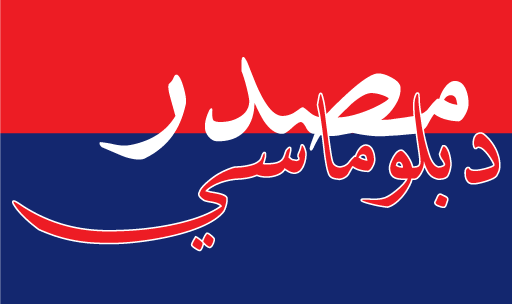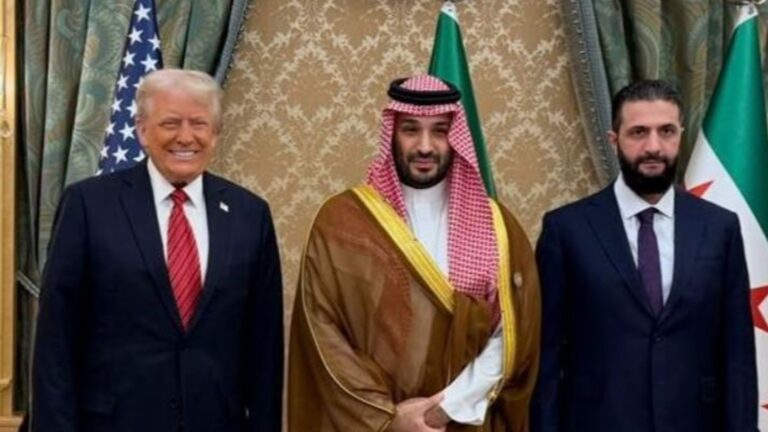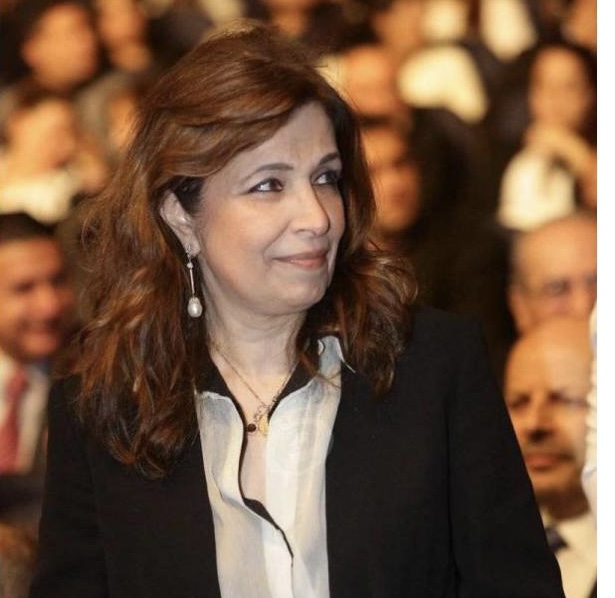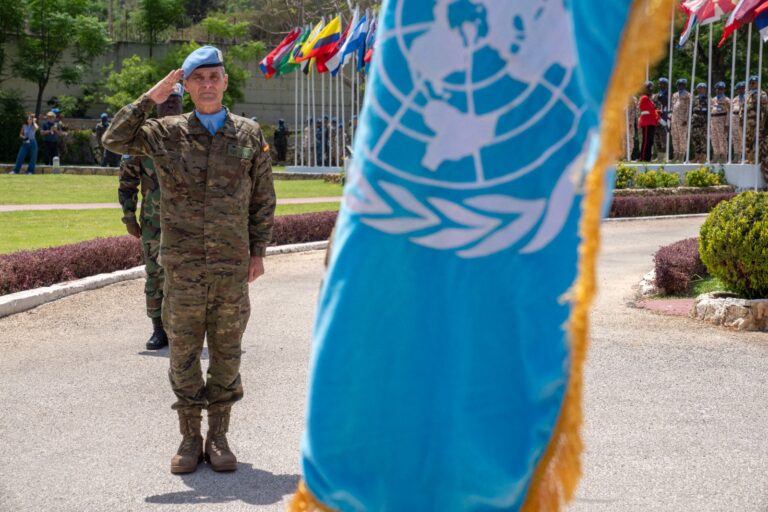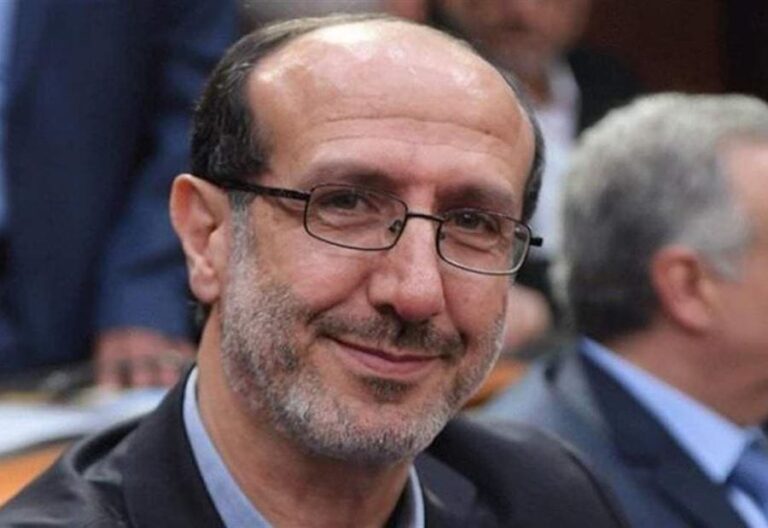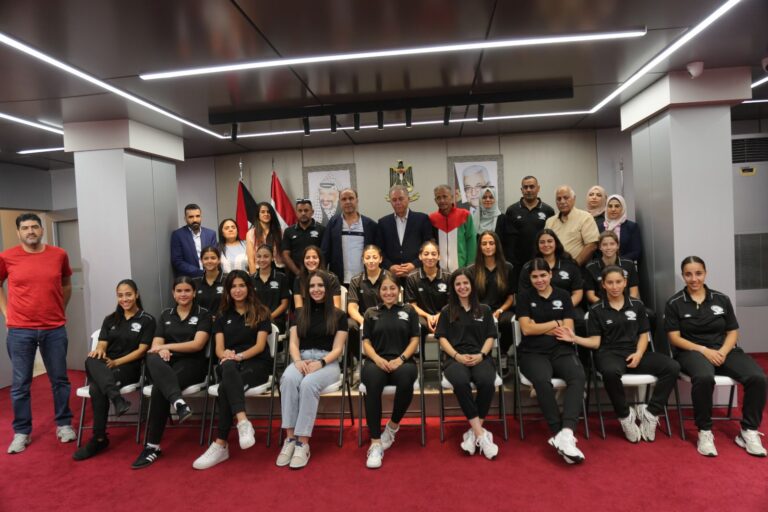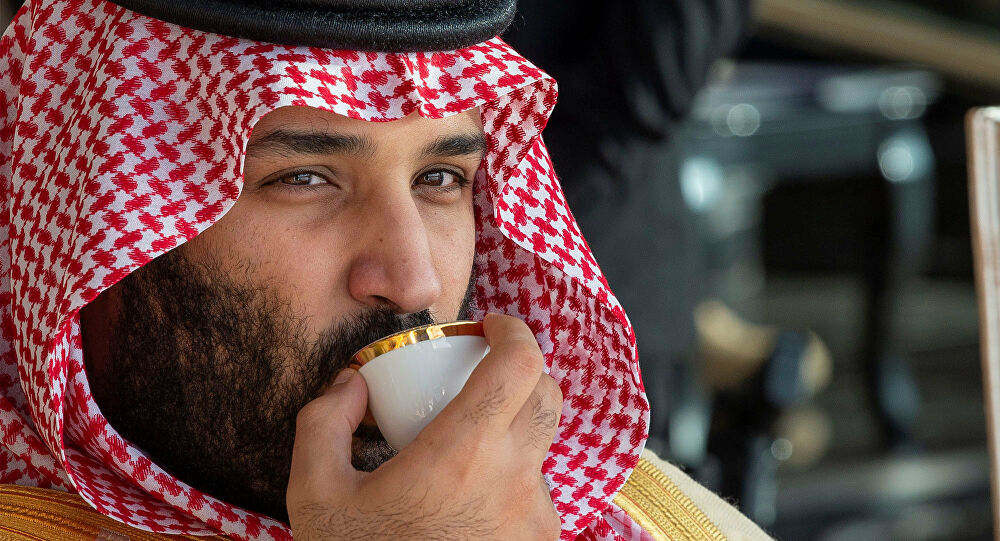
الأمير محمد بن سلمان ينشد حسما سريعا في لبنان ويخاطب عبر بيروت طهران وواشنطن
By Marlene Khalifeh
Masdar Diplomacy
Saudi Foreign Minister Prince Faisal bin Farhan revealed in a statement to “Reuters” on Saturday the secrets of the diplomatic offensive on Lebanon led by Saudi Arabia since October 26. Bin Farhan said: “the issue is much broader than the current situation,” adding: “I think that it is more important that the government in Lebanon, or the Lebanese institution, formulate a path that liberates Lebanon from the current political structure that reinforces Hezbollah’s hegemony”
,” Prince Faisal bin Farhan al-Saud told CNBC’s Hadley Gamble in Rome, Italy on Saturday, that the comments by the Lebanese minister — which referred to Saudi Arabia’s role in the ongoing civil war in Yemen — demonstrated the Iran-backed militant group Hezbollah was increasingly dominant in Lebanese politics
“I think we have come to the conclusion that dealing with Lebanon and its current government is not productive and not helpful with Hezbollah’s continuing dominance of the political scene, and with what we perceive as a continuing reluctance by this government and Lebanese political leaders in general to enact the necessary reforms, the necessary actions to push Lebanon in the direction of real change,” Prince Faisal said
“We have decided that I think engagement at this point is not productive or useful. And it’s not really in our interest”
The head of the Saudi diplomacy decrypts Saudi demands from Lebanon that go beyond the statements of the Minister of Information George Kordahi, and refer to the conflict with Iran and the hostility that Riyadh bears towards “Hezbollah.” Prince bin Farhan’s words mean that as long as the balance of power is in favor of “Hezbollah” and the “Free Patriotic Movement,” Saudi Arabia is not obliged to establish relations with its enemies”, according to a Saudi source
The Lebanese minister of Information George Kordahi made its statement to the “Youth parliament” program one month before he assumed his ministerial position in Najib Mikati’s government. The saudi statements show that Kordahi’s declarations are nothing but a pretext for Saudi Arabia to launch the largest diplomatic attack on Lebanon in order to confront the Iranian expansion and its proxies and urge the Gulf Cooperation Council countries to embrace the same approach
Kordahi talked on the TV program about the war in Yemen as a personal opinion. He mentioned the responsibility of Saudi Arabia and the UAE in that war describing it as:” absurd”. And soon came an “imbalanced” reaction, according to the description of a well-informed Arab diplomat who spoke to “Masdar Diplomacy” website requiring anonymity
These statements, were published at a suspicious time this month, 3 months later. Saudi Arabia decided, through a statement issued by the Ministry of Foreign Affairs last Friday, to stop all Lebanese imports and to call on its ambassador, Walid Al-Bukhari, for consultation. Bukhari made a remarkable visit to the leader of the “Lebanese Forces” party, Samir Geagea, who is considered a major ally of Saudi Arabia in Lebanon
Saudi Arabia ordered the Lebanese ambassador to leave within 48 hours on Friday and recalled its own ambassador from Lebanon. Bahrain, Kuwait and the UAE also took similar actions in solidarity with Saudi Arabia
The Sultanate of Oman issued a statement on Saturday, expressing its “deep regret over the worsening relations between a number of Arab countries and the Lebanese Republic”
Qatar for its part, adopted the Saudi approach, the qatari ministry of Foreign Affairs issued a statement: “We express our strong dissatisfaction and condemnation of the recent declarations issued by the Lebanese Minister of Information.” The statement added, “The position of the Minister of Information is not responsible towards his country and towards Arab issues.” The ministry called on the Lebanese government to “take the necessary measures to calm the situation and heal the rift between the brothers”
Since its formation Miqati’s government was boycotted by Saudi Arabia
Lebanon excluded this diplomatic outbreak with the Saudis. The Government of Najib Miqati was formed on 12 Septembe, the ministerial statement comprised the restoration of ties with the Gulf countries. The Saudi ambassador to Lebanon Walid al-Bukhari did not make any visits even for President Najib Miqati and either to the new foreign minister Dr. Abdullah Bou Habib, in an unprecedented approach in the relations between the two countries
Saudi Arabia accused Lebanon of smuggling “Captagone pills” through fruits and vegetable trucks. Then, remarks made by the former Foreign minister Charbel Wehbe made Saudis angry, and Wehbe resigned
Riyadh did not change its approach towards Lebanon dealing with the country as an “enemy”, because of the great influence of Hezbollah, especially after the last parliamentary elections in 2018 and the Yemen war, which began in 2015, noting that Riyadh accuses Tehran of arming the Houthis
The American approach: the de-escalation
Since the persisting emerging crisis, and amid the absence of Lebanese Prime Minister Najib Mikati since last Friday, Mikati attends the Glasgow Conference on Climate Change, the Minister of Foreign Affairs and Emigrants, Dr. Abdullah Bou Habib, was assigned to head the work of a ministerial crisis cell to heal the rift with Saudi Arabia. Indeed, the committee held its first meeting on Saturday, to discuss an available solution of the Lebanese-Saudi diplomatic crisis, in the presence of Minister of Interior and Municipalities Bassam al-Mawla, Minister of Economy, Amin Salam, Minister of Finance, Youssef Khalil, Minister of Education and Higher Education Abbas Halabi, and Director General of the Republic Palace Antoine Choucair and a number of diplomats working in the ministry
The US Chargé d’Affairs, Richard Michaels, joined the meeting an hour later
In response to a press question, Foreign Minister Abdullah Bu Habib revealed, “President Mikati is in constant contact with us, he has made international exchanges and will meet in Glasgow with international officials tackling this issue, and all those who were contacted asked President Mikati not to consider resigning. I spoke with the Americans because they are the only ones who can mediate and help to solve these problems”
Statements made by the official spokesman for the US State Department, Samuel Werbig commenting on US sanctions against a Lebanese MP, Jamil al-Sayed, and two businessmen, Danny El-Khoury and Jihad El-Arab revealed that “The United States of America urges the Arab countries, especially Saudi Arabia and the UAE, and the countries in the region to communicate with the Lebanese government.” Werbig pointed out that “the US government is working with the international community to secure support for the Lebanese government, and we expect transparency and accountability from it”
Crisis Cell, Saudi demands and the American role
All of this was reflected in the “crisis cell” meeting on Saturday. “Masdar Diplomacy” website was informed that the US Chargé d’Affairs, Richard Michaels, was clear that Saudi Arabia had demands and conditions beyond the resignation of Information Minister George Kordahi. Because of the extreme secrecy of this cell due to the sensitivity of the situation, our website information is limited to these points: The Americans are pushing to brake the Saudi escalation, which is not in the interest of Lebanon and its stability, and that the United States of America seeks change in Lebanon and its system, but through democratic procedures. Like the upcoming parliamentary elections, and through sanctions as well, and not through shaking security stability, the USA is working to provide support to the Lebanese army, which is the backbone of stability. Secondly, Washington rejected the resignation of Najib Mikati’s government, because that may lead to a slippage and destabilization unwanted by America nor by the Arab countries surrounding Lebanon, including Jordan, whose King Abdullah II brought to Washington last July, a basic demand to President Joe Biden, which is to stop the collapse in Lebanon for fear of a
Spill over that could affects the Arab countries, including Jordan
In addition, the United States refuse to tease France, the official sponsor of Mikati’s government, whose shuttle diplomacy has been struggling to form it for 13 months, and therefore Biden and Macron’s recent meeting to settle the issue of American submarines to Australia means an American compromise with Paris, and therefore Biden, who knows what Lebanon means to Macron on the approach of a French presidential election, and he will not sabotage his efforts. Fourth, the United States of America, does not hide its tense relations with Saudi Arabia, and will not return to dialogue with it through this pressure on Lebanon, in which the United States seeks to arrange matters in a precise manner that does not make it slip completely to the Iranian axis and any escalation is in in the interest of Iran and its allies in Lebanon. Fifthly, and this is an analysis by one of the well-informed diplomats, The United States has no interest in destabilizing Lebanon and completely blowing it up, but this may not be consistent with the position of its main ally in the region, Israel. Sixth, the United States knows that its European allies are seriously afraid of the expansion of the crisis, which means a comprehensive deterioration in Lebanon, which may become a problem with refugees escaping to Europe
Saudi demands will not end when Kordah’s resignation
With regard to the Saudi demands, – it should be noted that the Kingdom has classified a day before the crisis “al Kard Al-Hassan” Foundation under sanctions – in addition to the formal demands raised by the Kingdom, Kordahi’s apology, his resignation or dismissal, will practically not end the crisis
“The resignation will not end the crisis, and this may appear clearly and even surprisingly through statements made by the Lebanese ambassador in Riyadh, Fawzi Kabbara, after he was asked to leave Saudi Arabia, as he spoke about “demands that Lebanon must meet”. and therefore “we must wait to find out what these demands are” according to the aforementioned diplomatic circles
There are other demands, a number of which were mentioned in the Saudi Foreign Ministry’s statement regarding the Captagone problem, as Saudi Arabia had previously asked the government of Hassan Diab and President Michel Aoun to control customs and stop the export of drugs, and preceded the decision to stop importing vegetables and fruits from Lebanon
Diplomatic Analysis
Several diplomats working in Lebanon indicate that the statement of Saudi Foreign Minister Prince Faisal bin Farhan was clear in terms of defining the crisis. A diplomat says: “If Kordahi was a minister, we would understand the Saudi anger, but his statements preceded his assumption of his ministerial position.”
according to diplomatic analysis, there is a Saudi desire to quickly resolve the problem of the Iranian-backed axis, “either with us or against us”
The Middle East is witnessing crucial developments, including the return of talks between Iran and the United States and the P5+1 group, which are currently stumbling and there is an international tug of war around Iran’s return to the agreement amid clear Iranian stubbornness. There are also dangerous developments in Yemen, which is the strategic for the Kingdom of Saudi Arabia. These Yemeni developments, in particular, including the siege of Ma’arib by the Houthis, find their resonance in Lebanon, which is once again paying the price for this regional competition
Diplomatic analysis indicates that the reaction of the Kingdom of Saudi Arabia is “exaggerated, seriously reflects the obstacles facing the Saudi-Iranian dialogues in Baghdad on Yemen, which was expressed by Saudi Foreign Minister Faisal bin Farhan in his interview with Reuters, when he revealed that These talks “have not made progress”
The American Saudi Relations are tense under the administration of US President Joe Biden. A diplomat working in Beirut says: “There are assurances that the Americans are not satisfied at all with the Saudi behavior in Lebanon, and consider it confusing to them and not in American interests, with the only exception that the Israeli interest may be different, and often the will of the Americans does not meet the desires of their ally, Israel.”
The crisis requires time, and there is no return for ambassadors
Diplomatic analysis obtained by “Masdar diplomacy” website from several sources indicate that the crisis will need time, and it may ease and diminish due to US pressure and mediation. But the return of ambassadors to work in the Gulf countries and the restoration of diplomatic relations with Lebanon will require time, because it is related to credibility, especially since the Saudi escalation has reached its climax with the Lebanese government, which has cut off any contact with it, which means that Saudi Arabia was not satisfied with the formation of Najib Mikati’s government since today. “The Saudis believe that this government is not responding to their demands, and the minister of Information George Kordahi’s statements are a reflection of the government’s policy, even if he made them previously and were an occasion for the Saudis to raise their voice against Hezbollah, and they took advantage of these statements to reveal decisions and plans that were previously prepared and the time has come for their implementation.” According to the aforementioned diplomat
No Arab mediation
In the past two days, no Arab mediation was recorded, “even Kuwait, which usually ensure the mediation it took similar decisions to the Kingdom, it expelled the Lebanese Chargé d’Affairs, Hadi Al-Hashem,.” As for Egypt, it has not yet undertaken any diplomatic initiative with any party, But Cairo supports Lebanon’s stability and the persistence of its government. As for France, it also did not show any public position, but certainly the French do not want the drop of the Mikati government because they support it
Many diplomatic circles working in Lebanon wonder: “How did Saudi Arabia and the Gulf states help Lebanon in its economic meltdown? The answer: Nothing. Therefore, nothing has changed except for the decision to ban Lebanese imports to the Gulf, which is a painful decision, but all of this should urge Lebanon to rely on itself and not wait country to support it. a country that is capable and rich in human resources, its hidden wealth, and its strategic location that no one can steal from it.” According to the aforementioned source
